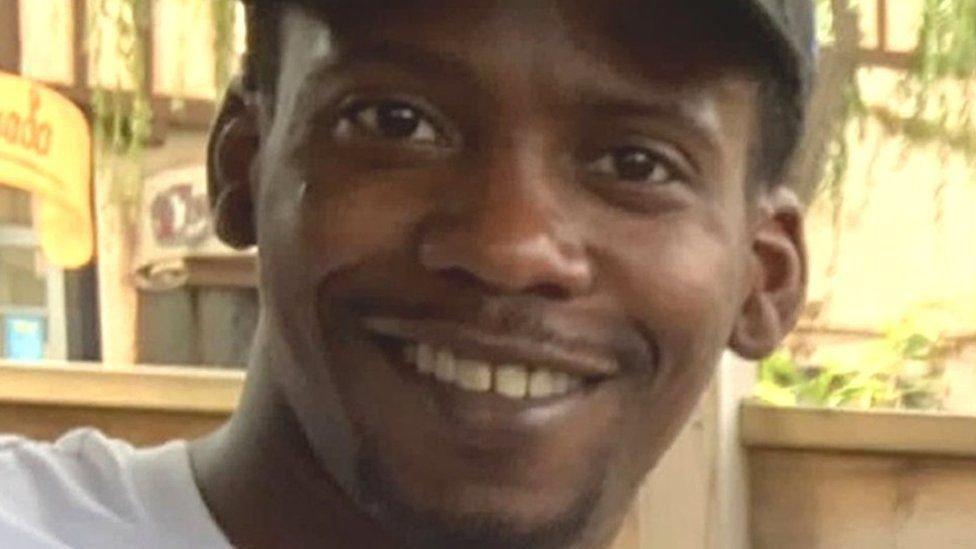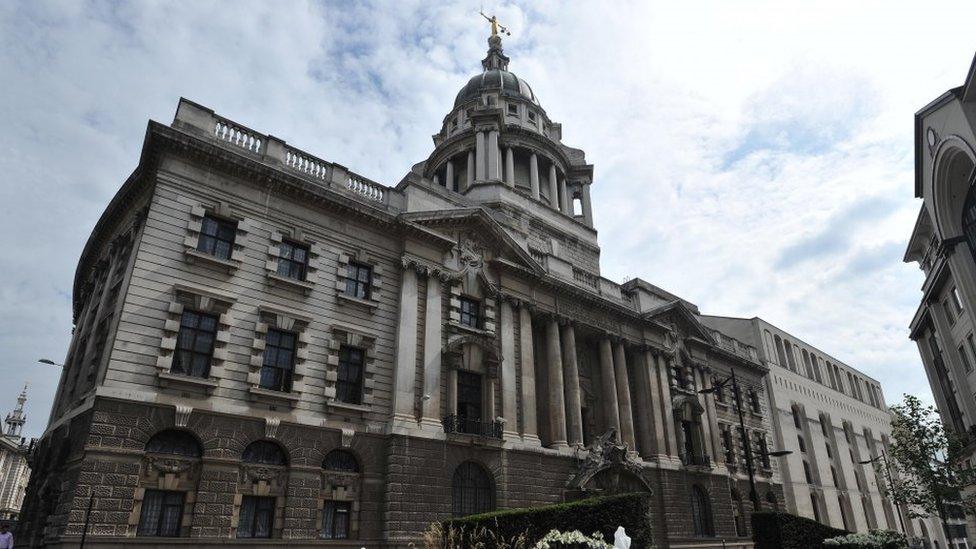Men in jury confusion lose High Court battle over detention
- Published

Adrian Keise was stabbed outside Waterloo station in October 2022
Three men facing a retrial over a man's death, due to a jury forewoman "mistake", have lost a High Court challenge to their ongoing detention.
In January Paul and Matthew Yusuff and Moussa Traore were cleared of murdering Adrian Kise, 32, who was fatally stabbed outside Waterloo station.
However minutes after verdicts were returned at the Old Bailey, the judge was told jurors had not all agreed.
They were reconvened and the judge ordered them to restart deliberations.
When the forewoman was asked by Judge Charles Gratwicke if she had made a mistake when she said the jury's verdicts were unanimous, she replied: "Yes."
While they later found Paul Yusuff not guilty of possessing a blade or point, jurors were unable to reach verdicts on the other counts and were discharged again.
Forewoman's 'stage fright'
Amid a planned re-trial in December the three men, who deny all charges, sought to challenge their ongoing detention at HMP Belmarsh on the basis the first verdicts were "valid" and should not have been "re-opened".
But in a 20-page written ruling on Wednesday three judges rejected their case, concluding the jury's forewoman suffered "a form of stage fright" amid the "stressful environment" of court proceedings.
Dame Victoria Sharp, who heard the challenge alongside Mr Justice Holgate and Mr Justice Hilliard, said the men's "continuing detention pending their retrial is lawful".

Kerim Fuad KC said when when jurors were first let go they were outside the "controlled and transparent environment" of the Old Bailey courtroom
Paul Yusuff, 21, and Matthew Yusuff, 23, had faced charges of murder and were also charged with an alternative count of manslaughter along with Traore, 24.
Kerim Fuad KC, for Paul Yusuff, told the court when jurors were first let go they were outside the "controlled and transparent environment" of the courtroom, were no longer under oath, and had "ample time" in which they could have discussed the case among themselves or with others outside including via phone messages.
The Crown Prosecution Service (CPS) said the error came after a jury "misunderstanding" and was "communicated very quickly" to the judge who "properly exercised his discretion to allow rectification of the jury's mistake".
CPS lawyers said it could not be claimed the jury forewoman's claim she made a mistake "was somehow untrue or inaccurate".
"In this case, it is plain from what happened that the forewoman had made a mistake in saying that the jury had reached unanimous verdicts," Dame Victoria said.
She added: "Put simply, the jury identified the mistake that had been made by their forewoman promptly.
"The mistake they identified was consistent with their first note to the judge - that they had not reached unanimous verdicts on any count; and the matter was then sensibly and expeditiously sorted out by the judge."
She went on to explain "it cannot be said" the judge made any "jurisdictional error of such gravity" as to deprive him of the ability to "accept the jury's correction of the verdicts returned, or that he erred in the exercise of his discretion".

Listen to the best of BBC Radio London on Sounds and follow BBC London on Facebook, external, X, external and Instagram, external. Send your story ideas to hellobbclondon@bbc.co.uk, external
Related topics
- Published2 February 2024